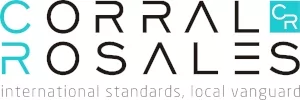Ecuador unilaterally adopted safeguard measures on goods imported from Colombia and Peru, due to their currency devaluation against the dollar. Even though, the General Secretariat of the Andean Community ("SGCA") rejected the corrective measures, ordered their termination and the refund of the values paid for such concept, the Ecuadorian Customs Administration ("SENAE") has rejected the reimbursement claims filed by the affected importers.
On December 24, 2014, Ecuador requested the SGCA to authorize the application of emergency measures on imports of goods originated in Colombia and Peru to restore normal competitive conditions altered by the recent currency devaluation in those countries. The request was registered on January 6, 2015, by the SGCA.
The SGCA has one month from receipt of the request to issue a ruling. If the SGCA does not do so, the member country that requested the measures may adopt them and, subsequently, the SGCA must decide on their maintenance, modification, or suspension.
Not having passed the term mentioned above, Ecuador, through Resolution 050-2014 issued on December 29, 2014, by the Committee on Foreign Trade ("COMEX") decided to apply a safeguard equal to 7% of the ad valorem tariff for products originated in Peru and 21% for products originated in Colombia.
On February 6, 2015, through Resolution 1762, the SGCA: i) rejected the application of safeguards for imports from Colombia and Peru; ii) ordered their immediate removal; and iii) recommended Ecuador to establish mechanisms to reimburse the companies affected by the application of such measures. Ecuador revoked the corrective measures on March 6, 2015, through Resolution 010-2015 issued by COMEX.
Although the measures were revoked, Ecuador should have refunded the amount paid by importers during the period the measures were applied. It is important to bear in mind that, by virtue of the supremacy principle, the Andean Community regulations prevails over domestic law; therefore, the CAN member countries are obliged to accept the Andean Community regulations, create mechanisms for their application and enforcement, and not obstruct them.
The purpose of this article is to identify the best alternative to obtain the refund of the amount paid for these safeguards and thus comply with the order of the SGCA.
SENAE's position has been to reject the claims submitted to obtain the refund of the safeguard, arguing that: i) the safeguard was in accordance with the Cartagena Agreement; ii) the amounts paid for the safeguard were in compliance with the applicable regulations; and iii) Resolution 1762 only recommended the refund.
SENAE´s interpretation is incorrect. Resolution 1762 obliges to refund the affected importers and recommended the establishment of adequate mechanisms to exercise this right. Therefore, it is not a recommendation. What was ordered by the SGCA is to reimburse the affected companies the amounts paid since January 5, 2015, after verifying that none of the conditions alleged by Ecuador to authorize the corrective measure were fulfilled.
In response to the refusal at the administrative proceeding, the importers filed lawsuits against the resolutions of the SENAE that rejected the administrative claims. However, the Tax Court ("TDCT") and the Administrative Court ("TDCA") have had contradictory opinions regarding the competent authority to review the case. Even when the National Court of Justice ("CNJ") has already stated that the competent court is the TDCT.
The CNJ has established that, although safeguards are not taxes, judgments have recognized that the safeguard is an economic measure adopted by the State that causes an increase in taxes on international trade; therefore, it has been recognized as a taxation matter.
This delay, both in the administrative and judicial process, has caused evident damages to importers who have not yet received a refund of the amount paid.
The remedies and actions provided by Ecuadorian law are not adequate mechanisms to guarantee the proper recognition of the importer's right to a refund of what has been unduly paid.
Faced with this situation, the Andean Community regulations allows the affected party to initiate a legal action for non-compliance against the member country, before the SGCA and the Court of Justice of the Andean Community ("TJCA"), a measure that excludes the possibility of simultaneously appealing to the national courts.
To file the action, the conduct that causes the non-compliance with the Andean community regulations and the violation of the individual's rights must be demonstrated. The SGCA issues a non-binding opinion about the existence of the damage. However, if the non-compliance persists, the person affected may appeal to the TJCA, which through a judgment will determine the responsibility of the member country and the obligation to adopt the necessary measures for its compliance. The judgment constitutes a legal instrument to claim the member country the execution of the judgment and compensation for damages.
The content of this article is intended to provide a general guide to the subject matter. Specialist advice should be sought about your specific circumstances.


